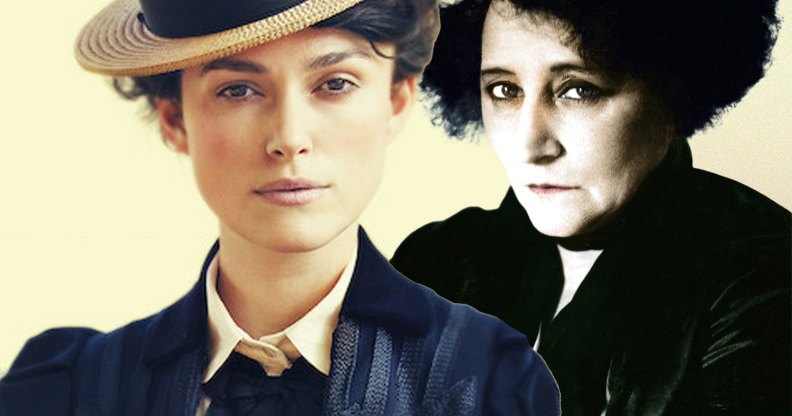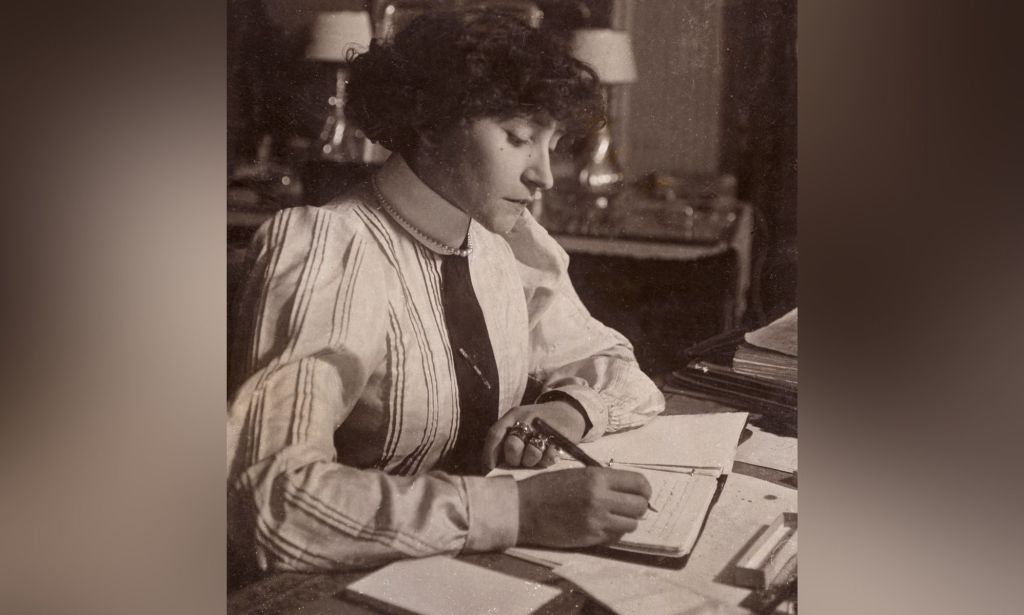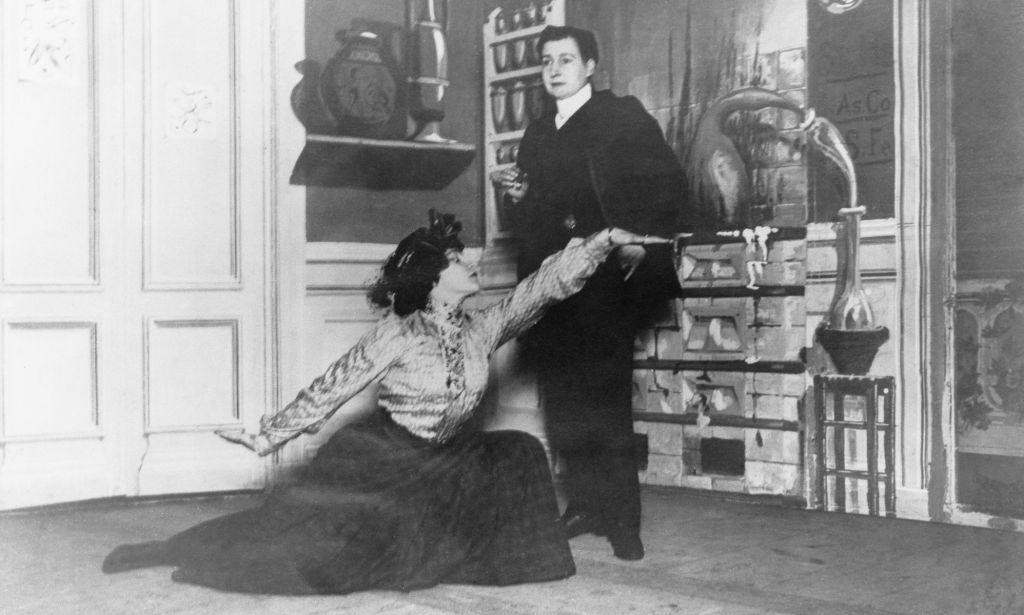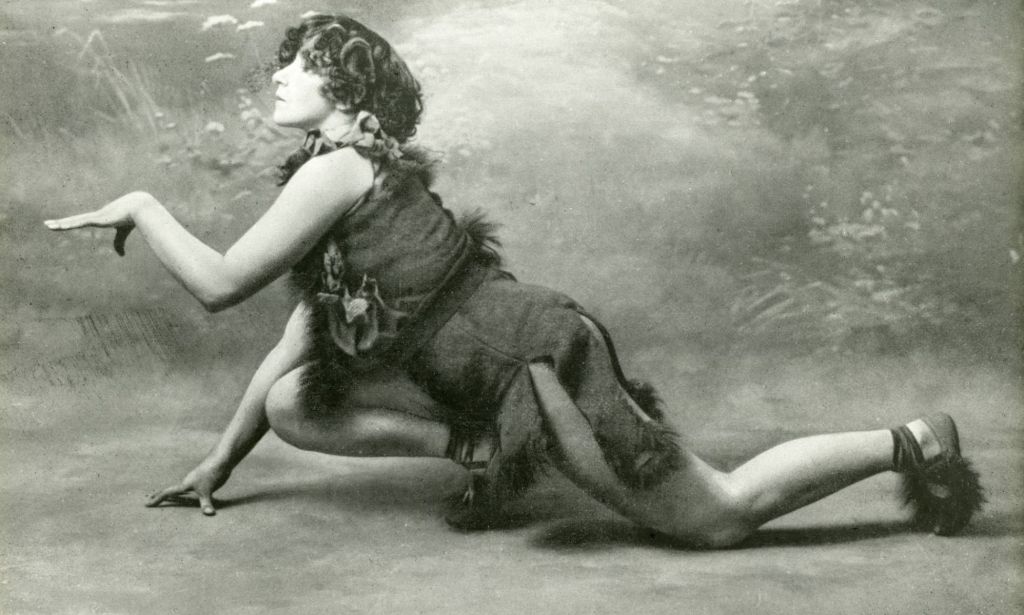Colette: True story of the revolutionary feminist author whose queer kiss sparked a riot in 1907

Colette was played by Keira Knightley in the 2018 film. (Lionsgate/Getty)
Sidonie-Gabrielle Colette, better known as Colette, was an icon of liberated womanhood whose queerness caused a riot in the early 19th century.
The author, whose story was told in the 2018 film Colette starring Keira Knightley, was a master of the written word, whose work remains increasingly relevant over 150 years since her birth.
As a journalist, she defied social norms of the time by openly talking about faking orgasms, domestic violence and social trends.
Her novels tackled sexuality, queer desire, maternity, fraught mother-daughter relationships and divorce long before these were considered suitable subjects for public discussion. She was also a mime and actor.
One of the many striking things about Colette is truly that she lived her life for herself. She was married three times and had relationships with women, sharing her queer identity with the world.
Colette was born on 28 January 1873 in the French village of Saint-Sauveur-en-Puisaye, and her childhood was spent in rural Burgundy. At age 20, she married Henry “Willy” Gauthier-Villars, a writer and critic who was 15 years her senior.

Willy introduced her to Parisian salons, and he soon discovered her talent for writing. He forced her to write – but published as his own work, keeping the copyright and royalties – her first four books, the chronicles of fictional schoolgirl Claudine. He would, at times, lock Colette in a room to spur her to complete the books.
The books were initially slow to sell, but Willy pushed his friends to write favourable reviews. Soon, the series’ popularity skyrocketed, and they were so popular that they spawned stage productions and merchandise.
Around 1906, her relationship with Willy came to an end, though they didn’t divorce until 1910.
Colette’s career on stage and the queer kiss that nearly started a riot
As shown in the film Colette, the newly-single author embarked on a six year-long affair with Mathilde de Morny (known as ‘Missy’ or even ‘Uncle Max’), who was the niece of Emperor Napoléon III and was a prominent figure in French society.
De Morny was known for defying gender norms and wore masculine clothing at a time when women were prohibited from doing so. It wasn’t until 2013 that France overturned its 200-year ban on women wearing trousers.
During this time, Colette took a job as a music hall performer, and Missy encouraged her love of performing on stage. Together they shocked audiences by sharing a kiss on the stage of the Moulin Rouge in 1907, and the police had to be called to quell a near-riot.

The ensuing scandal meant the two could no longer live together openly although their relationship continued for another five years.
Her experiences in the theatre world inspired her 1910 novel The Vagabond. It was this work that catapulted Colette to literary fame for the first time, and she won three votes for the prestigious Prix Goncourt for The Vagabond.
Colette had an affair with her step-son
In 1912, Colette married her second husband, Henry de Jouvenel. He was the editor of Le Matin, and Colette contributed short stories and theatre chronicles to the leading newspaper.
Colette’s literary work eerily mirrored her personal life. Her twin masterpieces, Chéri (1920) and its sequel The End of Chéri (1926), followed a middle-aged woman’s affair with a young man.
In 1920, at the age of 47, Colette met her 16-year-old stepson and began a secret relationship with him.
The affair continued until 1923, when they were discovered by de Jouvenel, who demanded a separation.

In 1935, having divorced de Jouvenel the previous year, Colette married writer Maurice Goudeket. During World War II, Goudeket, who was Jewish, was jailed by the Gestapo.
Colette campaigned to have him released and was successful in doing so. Goudeket hid in an attic for the duration of the war, fearing further persecution.
The couple – who remained married until Colette’s death in 1954 at the age of 81 – were happy by all accounts.
“I set myself gently by the side of this woman whom life has so wounded, and I did so with the firm determination of proving to her that fidelity was not an empty word,” Goudeket wrote in his account, Close to Colette.
“Year by year she grew more persuaded of this, and her last books bear witness to a serenity that she would not otherwise have acquired.”

During this relationship, Colette published her arguably best known work, the 1944 novella Gigi. Gigi is the story of a teen being raised by her grandmother and great-aunt, both retired courtesans, and they endeavour to teach her the family business.
The work inspired a film and was adapted as a Broadway play, which made Audrey Hepburn famous.
Colette’s life was shape around her love of independence – the freedom to love who she wanted and write what fascinated her – and she truly became a legend in her field.
She was nominated for the Nobel Prize in Literature in 1948, was the second woman to be made a grand officer of the Legion of Honour and was the first to be given a state funeral in France.
Her life is one worth cataloguing. The 2018 film Colette, which starred Keira Knightly as the queer author, chronicled the early phases of Colette’s life as a writer with no desire to conform to social norms – especially when it came to her love life.
How did this story make you feel?

